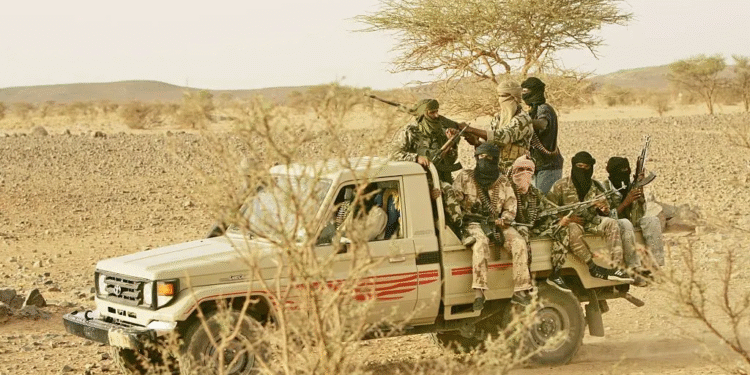Mali’s military government has moved to calm growing anger over a blockade by Islamist militants on key highways, where lorry drivers have faced ambushes, arson attacks, and kidnappings.
Prime Minister Abdoulaye Maïga admitted the seriousness of the crisis and said security measures were being taken to restore safe passage. The blockade, linked to al-Qaeda’s Sahel affiliate Jama’at Nusrat al-Islam wal-Muslimin (JNIM), is disrupting fuel supplies and threatening to cripple the landlocked country.

The crisis began earlier this month after six Senegalese truck drivers were kidnapped and later released on the Dakar-Bamako corridor. Militants have since set up checkpoints in Kayes and Nioro-du-Sahel, demanding “taxes” from traders, torching lorries and buses, and blocking convoys carrying food and fuel imports from Senegal, Mauritania and Ivory Coast.
Analysts say the aim is to choke Bamako, Mali’s capital, through “economic asphyxiation”. Entire villages have reportedly been brought to a standstill, with markets closed and transport halted.

The Malian army initially dismissed reports of a siege as “foreign media propaganda”, but has since announced airstrikes on JNIM camps and reinforced security in affected areas. Despite this, drivers and residents say militant checkpoints remain in place, while transport companies have suspended operations.
Kayes is a critical trade hub, handling 80% of Mali’s gold exports and serving as the main gateway for imports from Senegal. Analysts warn that the blockade not only threatens Mali’s fragile economy but also risks spreading instability into neighbouring coastal states.
Since 2012, Mali has struggled with jihadist violence linked to al-Qaeda and Islamic State groups. Experts say the blockade marks a dangerous shift in militant tactics — from direct fighting to economic sabotage — aimed at undermining the state and isolating Bamako.









